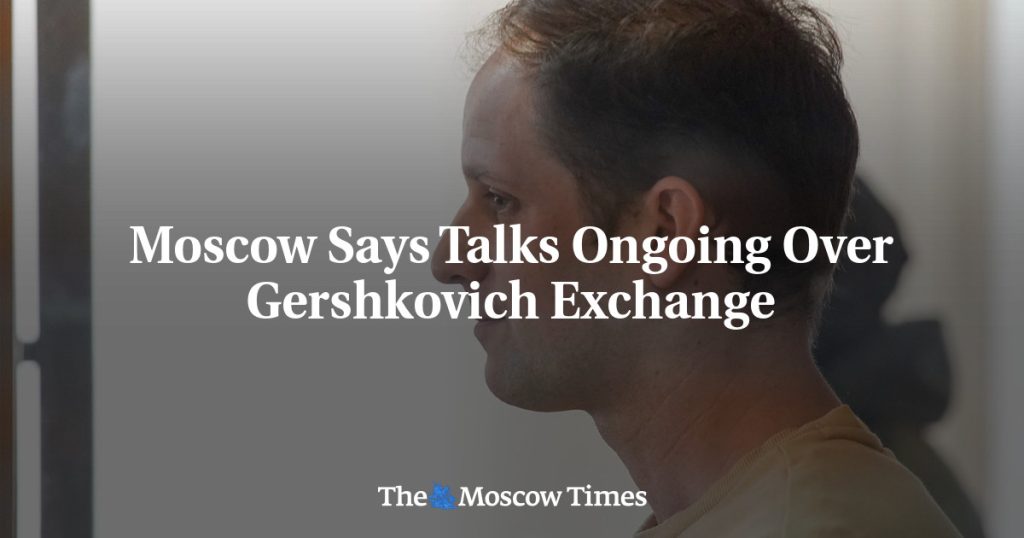Nearly a year after Wall Street Journal reporter Evan Gershkovich was detained in Russia on espionage charges, discussions are ongoing regarding a possible prisoner exchange involving the American journalist. Gershkovich was accused of spying by Russian security agents in March 2023, marking the first such charge against a Western journalist since the Soviet era. Despite vehement denials of the spying accusations from Gershkovich, his employers, and U.S. officials, he remains in custody.
Russian President Vladimir Putin has publicly expressed a willingness to engage in a prisoner swap involving Gershkovich, and the Kremlin confirmed that talks regarding this exchange are still occurring behind the scenes. Kremlin spokesman Dmitry Peskov emphasized the need for secrecy in these discussions, stating that breaking this silence could lead to additional problems and hinder the achievement of any results in the process. A court in Moscow recently ruled that Gershkovich would remain in pre-trial detention until late June, with no indication of when a trial might begin.
Speculation is rife about the likelihood of a prisoner swap occurring before a verdict is reached in Gershkovich’s case. Some observers believe that any exchange is dependent on the outcome of his trial. The U.S. government has accused Moscow of arresting American citizens on unfounded charges as a strategic move to use them as bargaining chips in order to secure the release of Russians convicted overseas. This practice of leveraging prisoners for diplomatic purposes has created tensions between the two countries and raised concerns about the treatment of foreign nationals in Russian custody.
Putin’s willingness to consider a prisoner exchange signifies a potential diplomatic breakthrough in the ongoing tensions between Russia and the United States. The possibility of Gershkovich being released in exchange for another individual raises questions about the motivations behind such negotiations and the impact they may have on future relations between the two nations. The complexity of navigating diplomatic negotiations involving detained individuals highlights the political sensitivities and strategic considerations at play in international relations.
The case of Evan Gershkovich serves as a focal point for discussions surrounding press freedom, espionage allegations, and the use of prisoners as geopolitical pawns. The circumstances of his detention have drawn attention to the challenges faced by journalists operating in politically sensitive environments and the risks associated with reporting on contentious issues. As efforts continue to secure his release through diplomatic channels, the broader implications of his case underscore the interconnected nature of international politics and the complexities of balancing competing interests on the world stage.
As negotiations for a potential prisoner exchange unfold, the fate of Evan Gershkovich remains uncertain, with his future contingent on the outcome of diplomatic talks between Russia and the United States. The resolution of his case may have far-reaching implications for bilateral relations, press freedom, and the treatment of foreign nationals detained on politically motivated charges. The ongoing developments in this high-profile incident underscore the intricate dynamics of international diplomacy and the challenges of navigating issues related to human rights, national security, and geopolitical interests in a complex and interconnected global landscape.


